Get Stratus to Space!
Why This Project Is Important
Stratus is a shoe-box sized satellite that uses a thermal imager to measure cloud motion from low-Earth orbit. For over five years, the spacecraft has allowed 200+ undergraduate Michigan Tech students to learn about the design, assembly, and operation processes of small satellites. We now need additional funding to overcome hurdles encountered during the integration process and to build the flight vehicle.
Project Description
Mission Statement: "The Stratus mission shall demonstrate an inexpensive, upwardly scalable architecture capable of imaging clouds in the infrared spectrum." The goal of the Stratus mission is to build, deploy, and demonstrate a low-cost CubeSat platform capable of measuring cloud properties. The Stratus mission utilizes a thermal imaging camera to discern Cloud Fraction (CF), which is the amount of cloud coverage per pixel. These Measurements of cloud coverage are crucial for understanding the heat transfer in Earth’s atmosphere, which can be used to produce reliable projections of climate change. Current satellite missions that perform similar tasks do so with spacecraft that are significantly larger in size, higher in price, and restricted in coverage. The Stratus mission will be conducted using a 3U CubeSat, which is comparable in size to a loaf of bread and weighs significantly less than spacecraft used in similar missions. Stratus will also serve as a pathfinder mission, demonstrating the capabilities of a CubeSat form factor to pave the way for future proliferated missions/constellations. The Stratus program has been funded by a (now expired) NASA research contract. During final testing and assembly of the spacecraft, multiple flight components were identified as faulty which halted mission progress. Moving forward, the team will be redesigning aspects of the spacecraft leveraging new and existing knowledge in the program. The Aerospace Enterprise is asking for $250,000 to replace malfunctioning hardware and ensure mission success.
Meet the Researchers

L. Brad King
Dr. King is an experimentalist interested in studying electric space propulsion systems, including Hall-effect thrusters, ion engines, and arcjets. By utilizing strong electromagnetic forces to accelerate an ionized plasma propellant, electric thrusters take advantage of on-orbit solar power generation to enjoy significant fuel savings over traditional chemical rockets. King's research experience in the broader field of plasma physics includes such diverse subjects as the design of the in-situ electrostatic probes, ion-energy analysis and time-of-flight mass spectrometry, Doppler laser cooling of trapped ions, optical flow diagnostics, and antimatter confinement.

Nolan Pickett
Nolan Pickett is the acting Program Manager of the Michigan Tech Aerospace Enterprise and is primarily responsible for project schedules, personnel management, and program logistics. He's a 4th year Mechanical Engineering student at Michigan Tech with minors in Aerospace Engineering and Business. He has previously interned for Plexus Corp. as an Automation Engineer and LaFarge Holcim as a Maintenance Engineer. Nolan hopes to complete a Master’s Degree in Aerospace Engineering and pursue a position in the aerospace industry upon graduation.

Kyle Bruursema
Kyle Bruursema is currently the acting Chief Engineer of the Aerospace Enterprise at Michigan Technological university. In this role he manages the requirements and testing necessary for a successful mission. Kyle is currently a 3rd year Mechanical and Electrical engineering student. He is pursuing fields in the aerospace industry and hopes to tackle a masters degree in pursuit of advancing his knowledge in the field.
days left
funded
last
What Your Donation Can Help Us Do:
- Purchase components that will be used in space!
- Support testing on the ground to ensure the spacecraft works properly
- Update and maintain facilities used for spacecraft development, testing, and integration
- Allow MTU undergraduate students to fly and operate a satellite from campus
$2,000 (5/100)
Name engraved on a plate mounted inside of the spacecraft
Recent Donors
Some donors may be hidden.

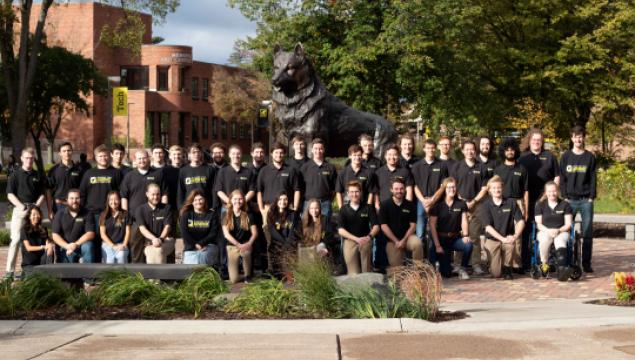
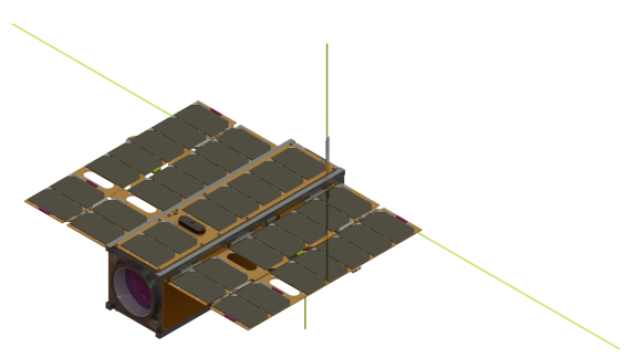
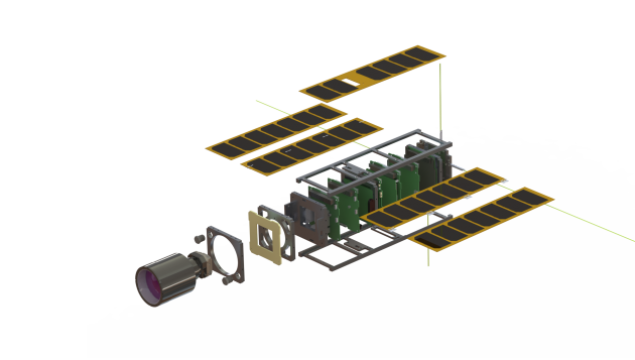
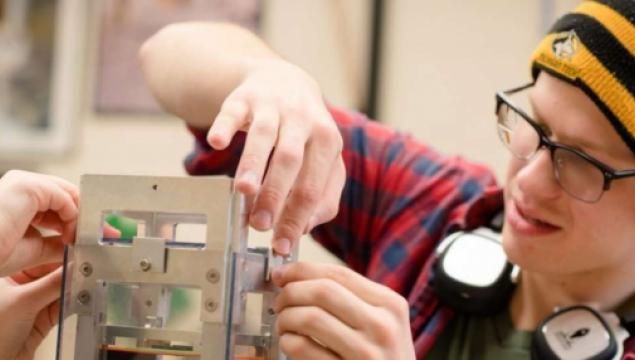
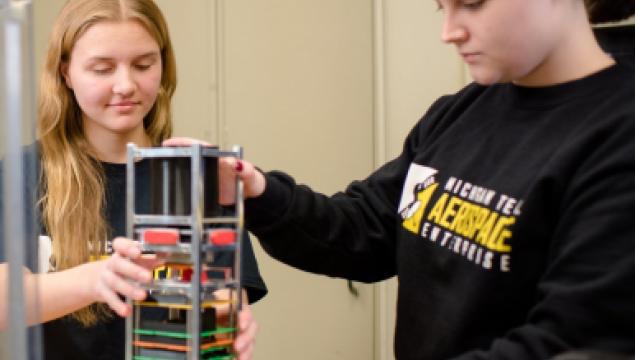
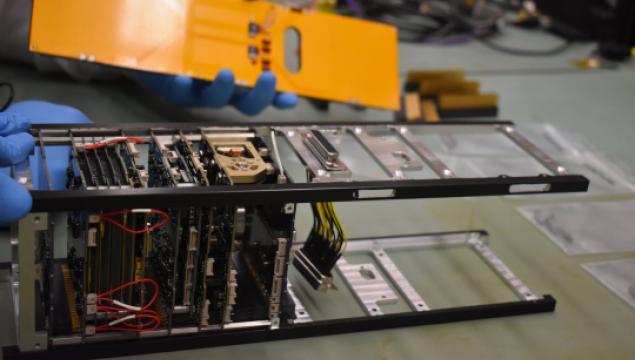
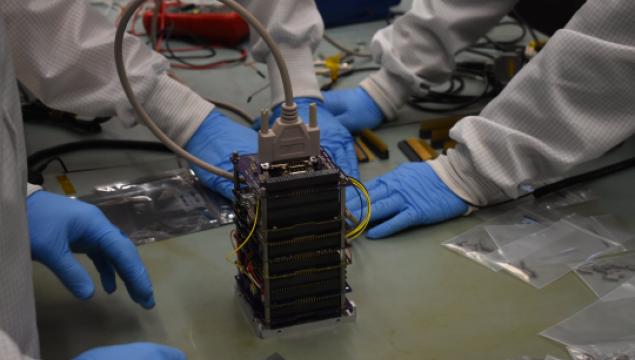
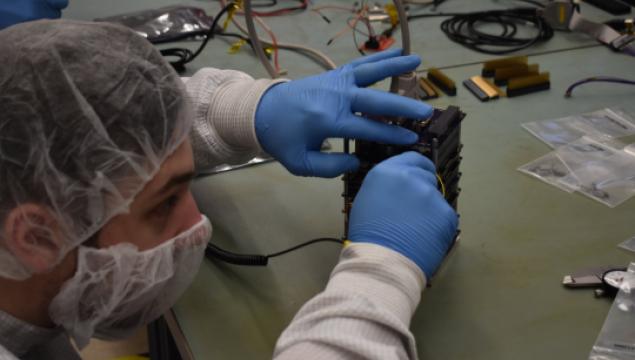
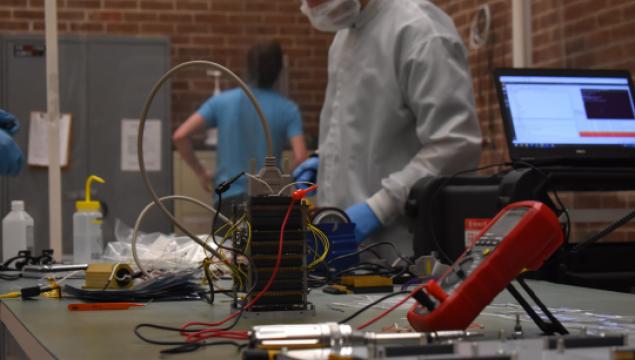





 Gifts to projects listed on SUPERIORIDEAS.ORG are received and processed by Michigan Tech Fund. Michigan Tech Fund is a tax-exempt organization under Section 501(c)(3) of the Internal Revenue Code acting on behalf of Michigan Technological University. It is the policy of Michigan Tech Fund that a portion of the gifts and/or income therefrom may be used to defray the costs of raising and administering the funds.
Gifts to projects listed on SUPERIORIDEAS.ORG are received and processed by Michigan Tech Fund. Michigan Tech Fund is a tax-exempt organization under Section 501(c)(3) of the Internal Revenue Code acting on behalf of Michigan Technological University. It is the policy of Michigan Tech Fund that a portion of the gifts and/or income therefrom may be used to defray the costs of raising and administering the funds.
Questions for the Researcher